#Fiction writing
Text
Creating a main character with depth requires a careful selection of traits
Avoid the temptation to overload them with a plethora of flaws, wounds, and virtues. Instead, focus on developing one dominant positive trait, one glaring flaw, and one profound pain. This approach allows you to delve deeply into each aspect, creating a character who is not only realistic but also compelling. By embodying these three elements to the fullest, your protagonist will be more than just a collection of traits—they will be a multifaceted individual with a clear, meaningful story arc. Embrace this approach, and your hero will stand out as truly unique in the literary landscape.
#writing tips#writing advice#writers on tumblr#writeblr#creative writing#fiction writing#writerscommunity#writing#writing help#writing resources
70 notes
·
View notes
Text
@bigwipscholar @sunflowerrosy @sl-vega @byoldervine @darkandstormydolls @aestheic-writer18 @fantasy-things-and-such @pastellbg @thepeculiarbird @baconandeggs-25 @aalinaaaaaa @thelazywitchphotographer @dandelionflowery @friendfromdsmp @nkikio
Well here's the mess...

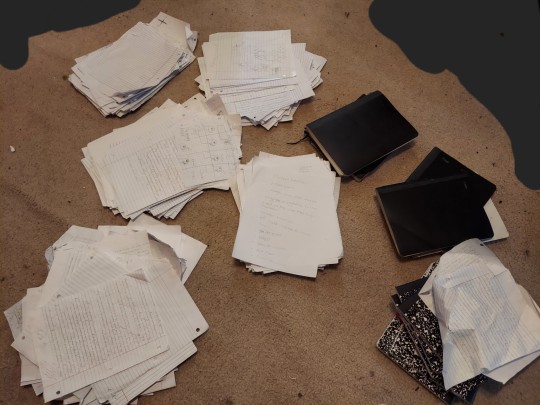
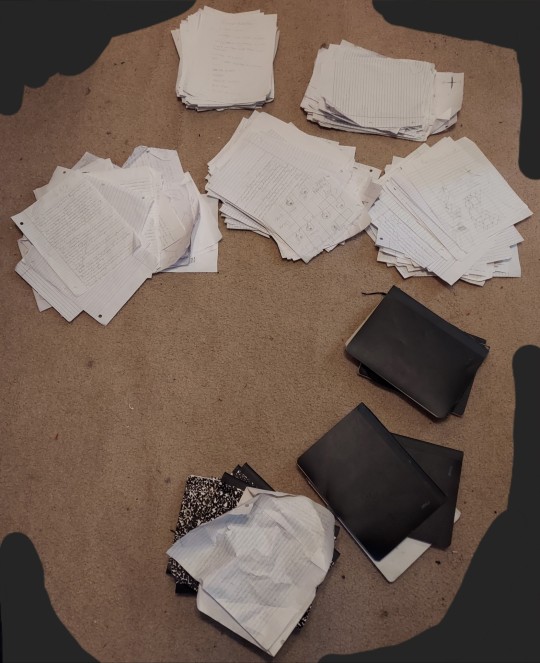
Yeahhhhhh... I got some sifting to do...
So y'all are gonna get a really long text post
#creative writing#fiction writing#writing community#writer things#writerscommunity#writers on tumblr#writing#writers#writeblr#writer#ellia tcot#ellia's tcot#ellia's rambling
53 notes
·
View notes
Text
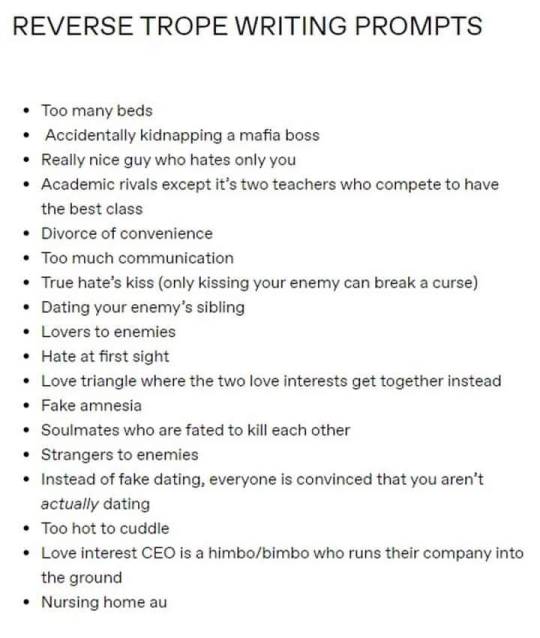
44 notes
·
View notes
Text
Fantasy Worldbuilding Questions (Technology)
Technology Worldbuilding Questions:
What is the level of technological development in the world? Is it roughly as developed as ours, or closer to a past feudal system or a futuristic system where tech such as AI, robotics, communication, transportation and healthcare are more advanced?
What is the impact of each technological development on others (for example, how have advances in AI affected communication or transportation)?
Who developed or discovered a specific technology important in your world, and what impact did its invention or discovery have?
Who benefits the most from technology in this world, or is access and benefit equal? Why is that (for either answer)?
Where is key technology produced or developed? What advantages and disadvantages might this give the producer?
Where is the greatest technological innovation happening in the world, and what are its benefits and risks to society?
When did certain technologies become obsolete (or will they), and who will that affect?
When technology breaks, glitches, or behaves unexpectedly, what are the possible consequences? What margin is there for error?
Why is a technology important to a specific group of people in your world – what benefits or advantages does it confer?
Why is specific technology restricted or prohibited, and by whom? (For example, many kids are forbidden cell phone access due to low access control for adult content in our world).
❯ ❯ ❯ Read other writing masterposts in this series: Worldbuilding Questions for Deeper Settings
#writeblr#novel writing#writing tips#writing advice#fiction writing#writing#worldbuilding#writing research#technological development#obsolete tech#who benefits#fwq
25 notes
·
View notes
Text
"If you need me, I'll be there to help you," he once told her.
Now looking at the graveyard bearing his name in front of her, she lets out a rueful smile.
"I need you. But you can't help me now."
-by ahopelessromantika-
#writing community#writeblr#writing#writing ideas#writers on tumblr#writing prompt#writing prompts#fiction#dialogue prompt#dialouge prompts#fiction prompts#romance prompts#romance writing#writers society#writers of tumblr#female writers#writers#writerscommunity#writerscorner#writer corner#writing inspo#writing inspiration#fiction writing#angst#story prompt#story prompts
32 notes
·
View notes
Text
Pirate Terms and Phrases
-> Pirate Lingo
-> A Pirate's Glossary
Batten Down The Hatches - tie everything down and put stuff away for a coming storm.
Brig - a prison on a ship.
Bring a Spring Upon 'er - turn the ship in a different direction
Broadside - the most vulnerable angle of a ship that runs the length of the boat.
Cutlass - a thick, heavy and rather short sword blade.
Dance with Jack Ketch - to hang; death at the hands of the law (Jack Ketch was a famed English executioner).
Davy Jones's Locker - a mythical place at the bottom of the ocean where drowned sailors are said to go.
Dead Men Tell No Tales - the reason given for leaving no survivors.
Flogging - severe beating of a person.
Gangplank - removable ramp between the pier and ship.
Give No Quarter - show no mercy.
Jack - flag flown at the front of the ship to show nationality.
Jolly Roger - black pirate flag with a white skull and crossbones.
Keelhaul - a punishment where someone is dragged under the ship. They are cut by the planks and barnacles on the bottom of the ship.
Landlubber - an inexperienced or clumsy person who doesn't have any sailing skills.
Letters of Marque - government-issued letters allowing privateers the right to piracy of another ship during wartime.
Man-O-War - a pirate ship that is decked out and prepared for battle.
Maroon - to leave someone stranded on a. deserted island with no supplies, typically a punishment for any crew members who disrespected the captain.
Mutiny - a situation in which the crew chooses a new captain, sometimes by forcibly removing the old one.
No Prey, No Pay - a common pirate law that meant crew members were not paid, but rather received a share of whatever loot was taken.
Old Salt - experienced pirate or sailor.
Pillage - to steal/rob a place using violence.
Powder Monkeys - men that performed the most dangerous work on the ship. They were treated harshly, rarely paid, and were expendable.
Privateer - government-appointed pirates.
Run A Shot Across the Bow - fire a warning shot at another boat's Captain.
Scurvy - a disease caused by Vitamin C Deficiency.
Sea Legs - when a sailor adjusts his balance from riding on a boat for a long time.
Strike Colors - lower a ship's flag to indicate surrender.
Weigh Anchor and Hoist the Mizzen - an order to the crew to pull up the anchor and get the ship sailing.
If you like what I do and want to support me, please consider buying me a coffee! I also offer editing services and other writing advice on my Ko-fi! Become a member to receive exclusive content, early access, and prioritized writing prompt requests.
#creative writing#writeblr#pirate writing prompts#pirates#pirate au#glossary#pirate lingo#pirate terms and phrases#pirate language#pirate vocab#pirate vocabulary#victorian slang#how to talk like a pirate#how to write#writing tips#fiction writing#writing advice#writing help#writing resources
12K notes
·
View notes
Text
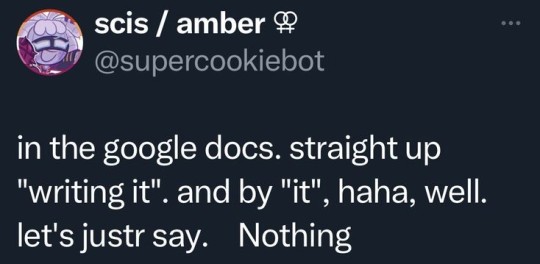
#fanfiction#writeblr#writer#writers#writing#writerscommunity#writblr#writer problems#writings#my writing#wip#write#being a writer#creative writing#female writers#fiction writing#just writer things#novel writing#writer life#writer meme#writer memes#writer struggles#writer stuff#writer things#writerblr#writers block#writers community#writers life#writers of tumblr#writers on tumblr
21K notes
·
View notes
Text
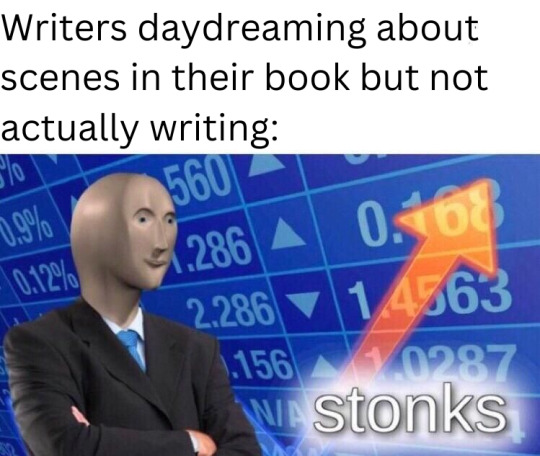
#it me#hmmm daydreaming go brrr#writing#fiction#creative writing#author#writerblr#writing community#my writing#writer#writers of tumblr#indie author#writing memes#novel writing#am writing#fantasy writing#book writing#fiction writing#story writing#writing blog#writing fiction#writing inspiration#writing meme
10K notes
·
View notes
Text
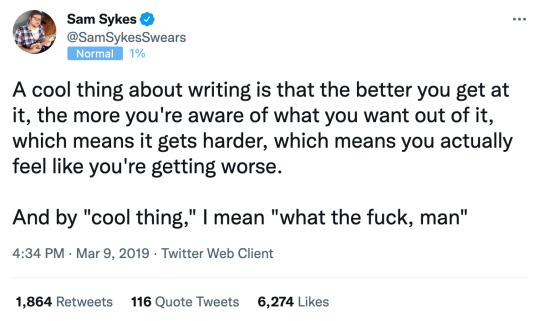
A cool thing about writing is that the better you get at it, the more you're aware of what you want out of it, which means it gets harder, which means you actually feel like you're getting worse.
And by "cool thing," I mean "what the fuck, man"
– Sam Sykes
#fiction#fiction writing#writing motivation#the writer life#sam sykes#tweet tweet#kcawf original#image description in alt text#writeblr
6K notes
·
View notes
Text
Writing rule:
Every character who speaks gets their own paragraph. If two characters are talking, each time they switch you must create a new paragraph.
Do not add more than one characters’s dialogue into a single paragraph or it will be too confusing for the reader.
#writing advice#writing tips#author advice#author tips#writing#writeblr#authors#books#writblr#author#aspiring writer#fiction writing#novel writing#creative writing#authors supporting authors#author blog#writing blog#stories#writerscorner#writing help#writing rules#wattpad author#ao3#wattpad#ao3 writer#wattpad writer#writer blog
5K notes
·
View notes
Text
10 Tips for Crafting Authentic Characters
Give them depth: Create characters with multidimensional personalities, including strengths, weaknesses, quirks, and flaws. They should have a mix of virtues and vices that make them relatable and interesting.
Provide backstory: Develop a detailed backstory for each character, even if only a fraction of it makes it into your story. Understanding a character's past experiences, traumas, and motivations will inform their actions and decisions in the present.
Show their emotions: Allow your characters to express a range of emotions realistically. Show how they react to different situations, both internally and externally, to make them feel human and relatable.
Give them distinct voices: Each character should have a unique way of speaking, with distinct vocabulary, syntax, and speech patterns. This helps readers differentiate between characters and adds authenticity to their dialogue.
Create internal conflicts: Give your characters inner struggles and conflicting desires that they must grapple with throughout the story. Internal conflicts add depth and complexity to characters, making them more believable.
Show their relationships: Develop meaningful relationships between characters, whether they're familial, romantic, platonic, or adversarial. Show how these relationships evolve and influence the characters' development over time.
Make them evolve: Characters should grow and change over the course of the story, driven by their experiences and the challenges they face. Allow them to learn from their mistakes, overcome obstacles, and develop as individuals.
Ground them in reality: Anchor your characters in the real world by giving them relatable experiences, hobbies, jobs, or cultural backgrounds. Incorporating realistic details adds depth and authenticity to their portrayal.
Show their flaws: Imperfect characters are often the most compelling. Don't be afraid to showcase your characters' flaws and vulnerabilities; these imperfections make them more relatable and human.
Give them agency: Allow your characters to drive the plot forward through their actions, decisions, and choices. Avoid making them passive observers or mere vehicles for the story's events. Characters with agency feel more authentic and engaging to readers.
#writing tips#writing advice#writers on tumblr#writeblr#creative writing#fiction writing#writerscommunity#writing#writing help#writing resources
4K notes
·
View notes
Text
HEYO LOSERS
I'm too lazy for a poll
SO
Who wants me to go through my 4-year-old TCOT very first very original drafts?
And also my stack of papers that's got stuff from like t0 different WIPs ranging from written last year to like 6 years ago?
WHO WANTS TO SEE MY OLD EMBARRASSING STUFFF???
(Reblog or comment if you do :])
Requirement is like 25 people? - and I'm going to @ everyong who helps
@oliolioxenfreewrites @friendfromdsmp @thepeculiarbird @corinneglass @phoenixradiant @sunflowerrosy @kia-is-poisoned @rivenantiqnerd @aestheic-writer18 @ryahisbored @nkikio @somethingclevermahogony @mjparkerwriting @sl-vega @darkandstormydolls @agirlandherquill @baconandeggs-25 @alnaperera @fantasy-things-and-such @ajgrey9647 @aalinaaaaaa @cybercelestian @danielleitloudernow @illarian-rambling @idunnobutliaiscool @jeremy-no @fandom-pits-dweller @katwritesshit @smudged-red-ink @sunnyjustice @thelazywitchphotographer @pastellbg @louudthoughts @bigwipscholar @killingthemoon84 @attemptingwriter @purplehandshumanfeelings @bluberimufim @artsandstoriesandstuff
#creative writing#fiction writing#writing community#writer things#writerscommunity#writers on tumblr#writeblr#writing#writers#writer#cringy stuff#ellia's rambling#notes#notes game#old writing#old stuff#cringe#writers and poets#writblur#writblr#writbelr#writbr
45 notes
·
View notes
Text
The Feral Writer lol
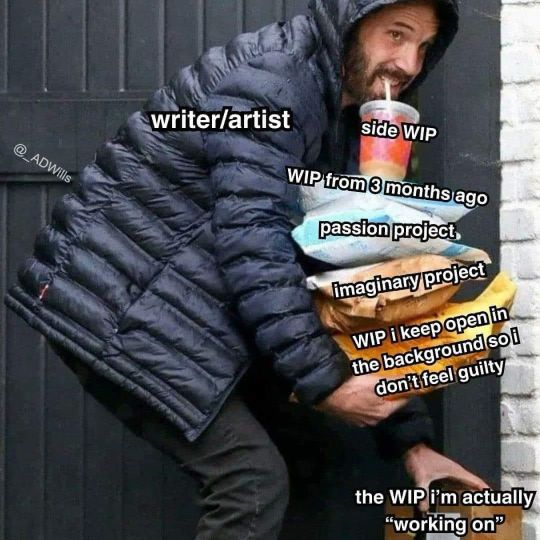
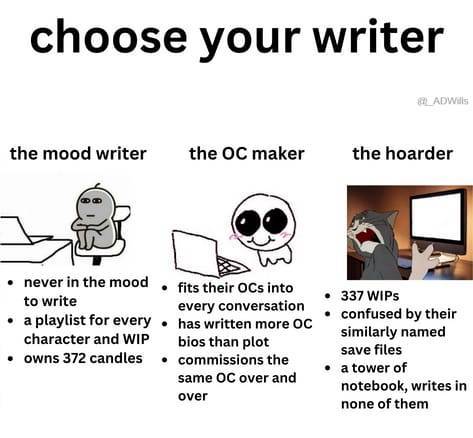
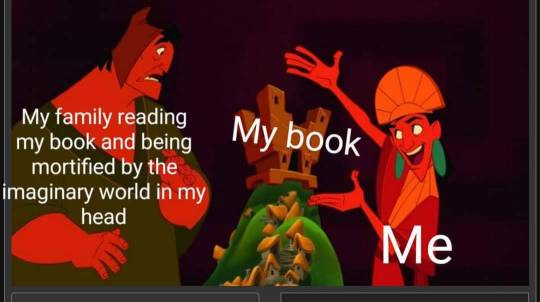


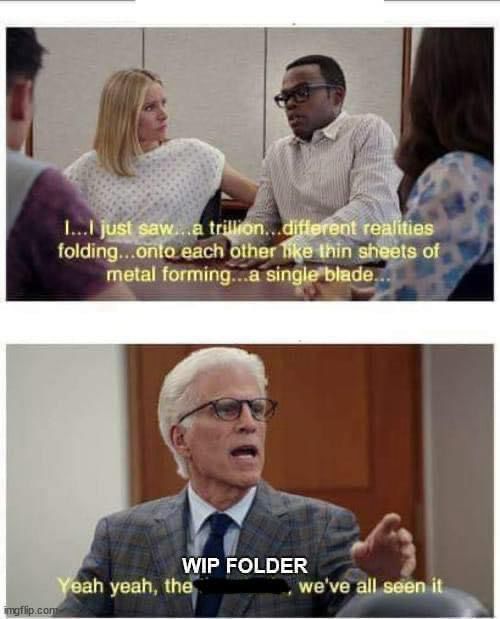
Writers Corner
#Writeblr#Writing community#Writing humor#Writers corner#Writers life#Writers#Writerscommunity#Writing#Writer#Creative writing#Fiction writing#Female writers#Tumblr writers
7K notes
·
View notes
Text
Weird Brain Hacks That Help Me Write
I'm a consistently inconsistent writer/aspiring novelist, member of the burnt-out-gifted-kid-to-adult-ADHD-diagnosis-pipeline, recently unemployed overachiever, and person who's sick of hearing the conventional neurotypical advice to dealing with writer's block (i.e. "write every single day," or "there's no such thing as writer's block- if you're struggling to write, just write" Like F*CK THAT. Thank you, Brenda, why don't you go and tell someone with diabetes to just start producing more insulin?)
I've yet to get to a point in my life where I'm able to consistently write at the pace I want to, but I've come a long way from where I was a few years ago. In the past five years I've written two drafts of a 130,000 word fantasy novel (currently working on the third) and I'm about 50,000 words in on the sequel. I've hit a bit of a snag recently, but now that I've suddenly got a lot of time on my hands, I'm hoping to revamp things and return to the basics that have gotten me to this point and I thought I might share.
1) My first draft stays between me and God
I find that I and a lot of other writers unfortunately have gotten it into our heads that first drafts are supposed to resemble the finished product and that revisions are only for fixing minor mistakes. Therefore, if our first draft sucks that must mean we suck as writers and having to rewrite things from scratch means that means our first draft is a failure.
I'm here to say that is one of the most detrimental mentalities you can have as a writer.
Ever try drawing a circle? You know how when you try to free-hand draw a perfect circle in one go, it never turns out right? Whereas if you scribble, say, ten circles on top of one another really quickly and then erase the messy lines until it looks like you drew a circle with a singular line, it ends up looking pretty decent?
Yeah. That's what the drafting process is.
Your first draft is supposed to suck. I don't care who you are, but you're never going to write a perfect first draft, especially if you're inexperienced. The purpose of the first draft is to lay down a semi-workable foundation. A really loose, messy sketch if you will. Get it all down on paper, even if it turns out to be the most cliche, cringe-inducing writing you've ever done. You can work out those kinks in the later drafts. The hardest part of the first draft is the most crucial part: getting started. Don't stress yourself out and make it even harder than it already is.
If that means making a promise to yourself that no one other than you will ever read your first draft unless it's over your cold, dead body, so be it.
2) Tell perfectionism to screw off by writing with a pen
I used to exclusively write with pencil until I realized I was spending more time erasing instead of writing.
Writing with a pen keeps me from editing while I right. Like, sometimes I'll have to cross something out or make notes in the margins, but unlike erasing and rewriting, this leaves the page looking like a disaster zone and that's a good thing.
If my writing looks like a complete mess on paper, that helps me move past the perfectionist paralysis and just focus on getting words down on the page. Somehow seeing a page full of chicken scratch makes me less worried about making my writing all perfect and pretty- and that helps me get on with my main goal of fleshing out ideas and getting words on a page.
3) It's okay to leave things blank when you can't think of the right word
My writing, especially my first draft, is often filled with ___ and .... and (insert name here) and red text that reads like stage directions because I can't think of what is supposed to go there or the correct way to write it.
I found it helps to treat my writing like I do multiple choice tests. Can't think of the right answer? Just skip it. Circle it, come back to it later, but don't let one tricky question stall you to the point where you run out of brain power or run out of time to answer the other questions.
If I'm on a role, I'm not gonna waste it by trying to remember that exact word that I need or figure out the right transition into the next scene or paragraph. I'm just going to leave it blank, mark to myself that I'll need to fix the problem later, and move on.
Trust me. This helps me sooooo much with staying on a roll.
4) Write Out of Order
This may not be for everyone, but it works wonders for me.
Sure, the story your writing may need to progress chronologically, but does that mean you need to write it chronologically? No. It just needs to be written.
I generally don't do this as much for editing, but for writing, so long as you're making progress, it doesn't matter if it's in the right order. Can't think of how to structure Chapter 2, but you have a pretty good idea of how your story's going to end? Write the ending then. You'll have to go back and write Chapter 2 eventually, but if you're feeling more motivated to write a completely different part of the book, who's to say you can't do that?
When I'm working on a project, I start off with a single document that I title "Scrap for (Project Title)" and then just write whatever comes to mind, in whatever order. Once I've gotten enough to work with, then I start outlining my plot and predicting how many chapters I'm going to need. Then, I create separate google docs for each individual chapter and work on them in whatever order I feel like, often leaving several partially complete as I jump from one to the other. Then, as each one gets finished, I copy and paste the chapter into the full manuscript document. This means that the official "draft" could have Chapters 1 and 9, but completely be missing Chapters 2-8, and that's fine. It's not like anyone will ever know once I finish it.
Sorry for the absurdly long post. Hopes this helps someone. Maybe I'll share more tricks in the future.
#writing#creative writing#writerscommunity#writers on tumblr#writing tips#writing advice#writers block#novel writing#fiction writing#writer#writers of tumblr
3K notes
·
View notes
Text
being a writer is spelling disembowelment correctly on the first try but somehow always screwing up definitliely
#writeblr#writer problems#creative writing#writing#writer#fiction#fiction writing#write#writers#writers on tumblr#writer life#spelling#speling misteaks#that last tag pained me to type#but seriously#we're writers why can't we spell#writing words is literally our whole thing#writing struggle#writing stuff#shitpost#writer vibes#too many tags#writer's problems#writer's life#writer's block#writer's thoughts#writerscommunity#writers and poets
2K notes
·
View notes
Text
the toughest part about writing isn't getting words on the page. the toughest part about writing is ignoring the voice in my head that says,
"hey man— sorry to interrupt, but that last sentence? it could use a few more emdashes. maybe just— and i know this seems nuts— ten or fifteen?? thanks— great stuff btw."
#writeblr#writers#creative writing#original writing#writeblr community#jgmartin#writing#writers of tumblr#writerscommunity#tumblr writers#writer problems#am writing#fiction writing#novel writing#writblr#writer community#writer things#writers and poets#writers on tumblr#writerslife#writing advice#text post#writing blog
3K notes
·
View notes